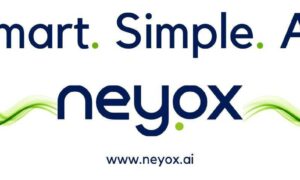CFD trading was introduced to the trading world in 1990 and in a short period, it has gained popularity among traders.
CFD or contract for difference is a financial derivative that allows traders to speculate on the price movements of different financial instruments like currencies, stocks, commodities, and indices. However, unlike traditional trading, in CFD the buyer does not actually own the underlying assets. Instead, a trader enters a contract with a broker to exchange the difference in price of the underlying asset from the time of opening and closing of the contract.
Features of CFDs
Here are the important features of CFDs-
- Leverage: In CFDs, the traders are offered significant leverage by the broker, meaning that traders are allowed to control a large position with a relatively smaller capital amount. However, because of leverage, the traders are prone to both profits and losses, making it essential for them to use the leverage wisely.
- Diverse markets: There are numerous instruments like forex (foreign exchange), commodities, stocks, indices, cryptocurrencies, etc., to be traded across the globe. Traders can trade in multiple instruments, thus, diversifying their portfolio and hedging the investments.
- No ownership: In CFD trading, the traders do not own the underlying asset. Instead, traders merely speculate on the asset’s price movement, reducing the costs and complexities linked with owning the physical assets.
Now that we are familiar with what is CFD and its features, let’s learn what is a CFD broker and CFD account.
What is a CFD Broker?
In CFD trading, CFD broker is a financial service provider that offers CFD trading platforms to retail and institutional investors. These brokers act as intermediaries facilitating the buying and selling of CFDs. The CFD brokers provide traders with the necessary trading platforms, tools, and resources for engaging in CFD trading.
Role of a CFD Broker
The role of a CFD broker in trading CFDs includes-
- Trading platform– CFD broker provides traders with access to online CFD trading platforms where traders can place trades and monitor their positions along with analyzing the market data. Most CFD platforms offer advanced charting tools, technical indicators, and numerous other features to assist in making informed trading decisions.
- Leverage Provisions– A CFD broker provides its users with leverage, allowing them to open larger positions with a smaller capital amount. The leverage amount may vary according to the broker and the traded asset.
- Market Access– CFD brokers grant traders access to a wide range of markets, enabling them to diversify their investment portfolio across different instruments like CFD forex trading, CFD crypto trading, and more.
- Support and Education– Most CFD brokers out there offer educational resources like market analysis, webinars, e-books, tutorials, etc that help traders refine their trading skills and add to their financial knowledge.
What is a CFD Account?
A CFD account is an account that traders open with a CFD broker to start trading CFDs. This account functions as the primary interface through which traders deposit funds, place trades, and manage their trading activities.
Advantages of a CFD Account
Some of the major advantages of the CFD account include-
- Flexibility– CFDs allow traders to go long (buy) or short (sell) on an asset, providing flexibility to profit from both rising and falling markets.
- Diverse opportunities– With access to multiple markets, traders can diversify their portfolios and explore various trading opportunities.
- Leverage– The ability to trade on margin allows traders to control larger positions with less capital, potentially increasing returns.
How to Set Up a CFD Account?
Here are the steps that a trader needs to follow to set up a CFD account-
- Choosing a reliable broker– The first and foremost step in setting up a CFD account is choosing a reliable broker. While choosing a CFD broker, traders can consider looking for factors like regulatory status, reputation of the broker, range of assets, and markets offered.
- Account Registration– Upon choosing the desired broker, traders need to register for a CFD account. The process usually involves filling up personal details, verifying identity, and agreeing to the terms and conditions of the broker.
- Funding Account– On successful completion of the registration, the traders need to deposit funds. Most brokers offer various funding methods like credit/debit cards, bank transfers, and e-wallets.
- Initiating the Trade– Now it’s time to initiate a trade. Choose among a wide range of markets, use desired leverage, and amplify your trade.
Conclusion
To conclude, CFD brokers and CFD accounts are essential components of the CFD trading world. They offer traders access to a wide range of markets, leverage, and advanced trading tools. However, it is crucial for traders, be they beginner or seasoned, to approach CFD trading with a solid understanding of the risks involved and a well-thought-out trading strategy. By doing so, traders can harness the potential of CFDs to enhance their trading portfolios and achieve their financial goals.

































